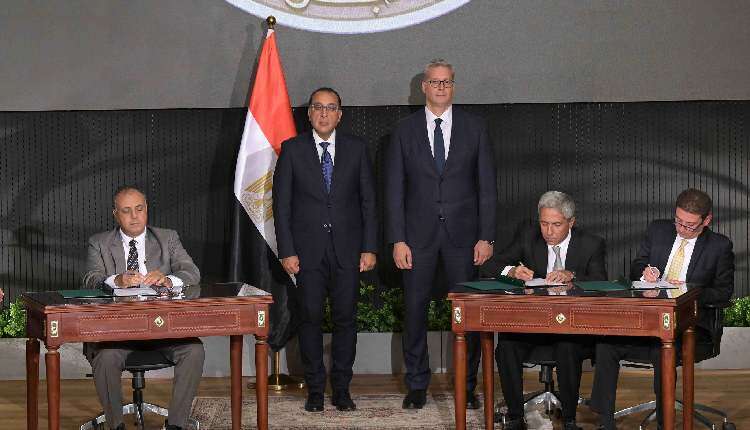The news about Egypt’s Minister of Petroleum and Mineral Resources, Karim Badawi, signing several memorandums of understanding (MoUs) to advance the country’s oil and gas sector marks a significant step in enhancing its energy capabilities. These agreements involve key partnerships aimed at exploring new technologies and improving operational efficiency within the industry.
One of the notable agreements is between the Egyptian Natural Gas Holding Company (EGAS) and the Greek company DESFA. The partnership focuses on exploring carbon capture and storage technologies, which are becoming increasingly important in the global effort to reduce greenhouse gas emissions. By investing in these technologies, Egypt aims to position itself as a leader in sustainable energy practices while still harnessing its natural gas resources.
Additionally, GASCO, another key player in Egypt’s energy sector, has also partnered with DESFA to enhance the transportation of natural gas and hydrogen. As the world shifts towards cleaner energy sources, hydrogen is gaining attention as a versatile fuel that can complement natural gas. This collaboration signifies Egypt’s commitment to diversifying its energy portfolio and exploring innovative solutions for energy transportation.
Have you read? Cholera Cases Surge in West and Central Africa Amid Climate Crisis
In another significant development, GASCO signed an agreement with BakerRisk, a firm specializing in safety and risk management. This partnership aims to improve operational safety and energy efficiency within GASCO’s operations. As safety becomes a paramount concern in the oil and gas industry, this agreement reflects Egypt’s proactive approach to ensuring that its energy sector operates safely and efficiently.
Furthermore, the Egyptian General Petroleum Corporation (EGPC) has partnered with Shell to strengthen leadership training in health and safety. This initiative highlights the importance of developing human capital within the oil and gas sector. By investing in training programs, Egypt aims to cultivate a skilled workforce capable of managing the complexities of modern energy operations while prioritizing safety standards.
HAVE YOU READ? Namibia’s Oil Boom Saipem Drillship Arrives Amidst Challenges
The agreements come at a time when Egypt is looking to maximize its oil and gas potential amid global shifts towards renewable energy. While there is a growing emphasis on sustainability, Egypt’s recent discoveries in oil and gas have prompted increased exploration efforts. The country has significant reserves that can contribute to both domestic energy needs and export opportunities.
However, the focus on fossil fuels raises questions about balancing economic growth with environmental responsibilities. As countries worldwide commit to reducing carbon emissions, Egypt must navigate its role in this transition while leveraging its hydrocarbon resources. The partnerships formed through these MoUs are essential for ensuring that Egypt can develop its oil and gas sector sustainably.
In conclusion, the signing of these MoUs by Minister Karim Badawi represents a strategic move for Egypt as it seeks to advance its oil and gas sector while embracing new technologies and practices. The collaborations with companies like DESFA, BakerRisk, and Shell illustrate a commitment to innovation, safety, and sustainability in energy production. As Egypt continues to explore its vast resources, it faces the challenge of balancing economic development with environmental stewardship—a challenge that will shape the future of its energy landscape.
READ: ECOWAS Leads the Way in West Africa’s Renewable Energy Transformation














